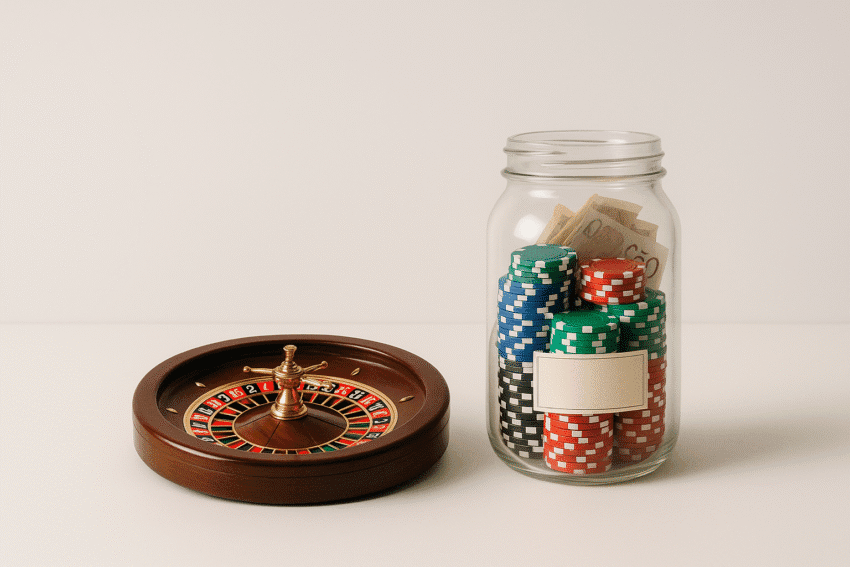
30 Billion Pounds Needed: The UK Treasury Weighs Another Gambling Tax Increase
Planning the budget and economics of a country is no easy feat. This is the case all over the world. Countries have a plan and then at the last minute, you always seem to see them scrambling.
If you’re keeping an eye on the state of UK finances, you might’ve noticed there’s a lot of talk about how the government plans to plug a rather large £30 billion gap. That’s a massive gap that needs to be filled but the question is “How will the UK do it?
The one thought was to increase VAT, income tax and national insurance to come up with the funds; however, if you think about it, how would you as a UK citizen react to that? With prices already skyrocketing, having a higher tax wouldn’t bode well with you, would it? Now, the treasury is looking at something more socially acceptable, which is increasing the gambling tax in the country.
Why Gambling is in the Firing Line
Gambling taxes are being considered for one main reason: political acceptability. Compared to raising income tax or cutting public services, taxing gambling tends to be less controversial. That makes it an easier target, especially when trying to soften the political blow of a tough budget. If you were to increase VAT or income tax, the treasury would have hundreds of thousands of people on their doorstep the very next morning, complaining. However, less so with the gambling tax.
The Treasury has already launched a consultation aimed at simplifying and unifying existing betting duties. Right now, there are three main forms of gambling tax, ranging from 15% to 21%. The consultation is likely to result in a single rate across the board and many in the industry believe it’ll be closer to the top of that range.
This comes at a time when the government desperately needs to find billions in additional revenue. So it’s not hard to see why a more aggressive tax plan, perhaps even above that 21% threshold, is on the table. In an industry that is ever-changing and upgrading, such as the online gambling one, new features are constantly being added, such as the no deposit bonus, which allows players to participate in games without having to use any of their own funds, it will be intersting to see how this tax impacts the livelihood of players and gambling operators.
What Might Change?
There’s been a fair bit of speculation around just how far the government might go. Last year, in the run-up to the Autumn Statement, a few ideas floated around, including raising as much as £3 billion from the gambling industry. One suggestion from the Institute for Public Policy Research proposed doubling the standard betting duty from 15% to 30%. Another idea was a tiered system that taxed riskier betting products at much higher rates, potentially up to 50%.
So far, there’s no official confirmation of what the final plan might look like but the direction is clear.
Industry Reaction: Pushback and Warnings
As expected, the reaction from the gambling sector hasn’t been particularly warm. Leaders within the industry are arguing that further tax rises could do serious harm, not just to businesses but also to related sectors.
Some of the points being raised include:
- A rise in duties could stifle growth in the gambling industry
- It might lead to job losses, particularly in retail betting and racing
- Horseracing could be hit hard, as it depends heavily on betting revenue
- A sharp increase could push gamblers towards unregulated or offshore platforms
The British Horseracing Authority is also stepping up its lobbying efforts. Their “Axe the Tax” campaign, launched earlier this year, is a direct response to these proposals. The campaign argues that raising and unifying taxes on remote gambling would do real damage to a sport already under pressure.
The Politics Behind the Numbers
If you’re wondering why income tax or VAT isn’t being considered, it’s mainly down to politics. Raising those taxes would be hugely unpopular with the general public. National insurance is equally sensitive, especially when households are already struggling with rising living costs.
That leaves taxes like those on gambling, tobacco or sugary drinks. These tend to be seen as ‘soft targets’ as they affect fewer people and often carry a moral argument alongside the financial one. So, although gambling tax increases may be controversial within the industry, they’re less likely to cause a political storm in Westminster.
What’s Next?
At the moment, there’s no confirmed plan from the Treasury. What’s clear is that another rise in gambling taxes is more than just a rumour. The signs all point to some form of tax increase being included in the upcoming budget.
The consultation launched earlier in the year will help shape the final approach. But if you’re in the industry or even if you’re just someone who is a keen gambler, it’s worth keeping an eye on developments. The decisions made over the next few months could shape the landscape of British betting for years to come.
The Bigger Picture
The thing about tax talk is that it gets repeated every single year and yet countries are still not able to tie it down. It’s fair, though, because demands are constantly changing and the treasury needs to keep up with this. It’s not an easy job, that’s for sure.